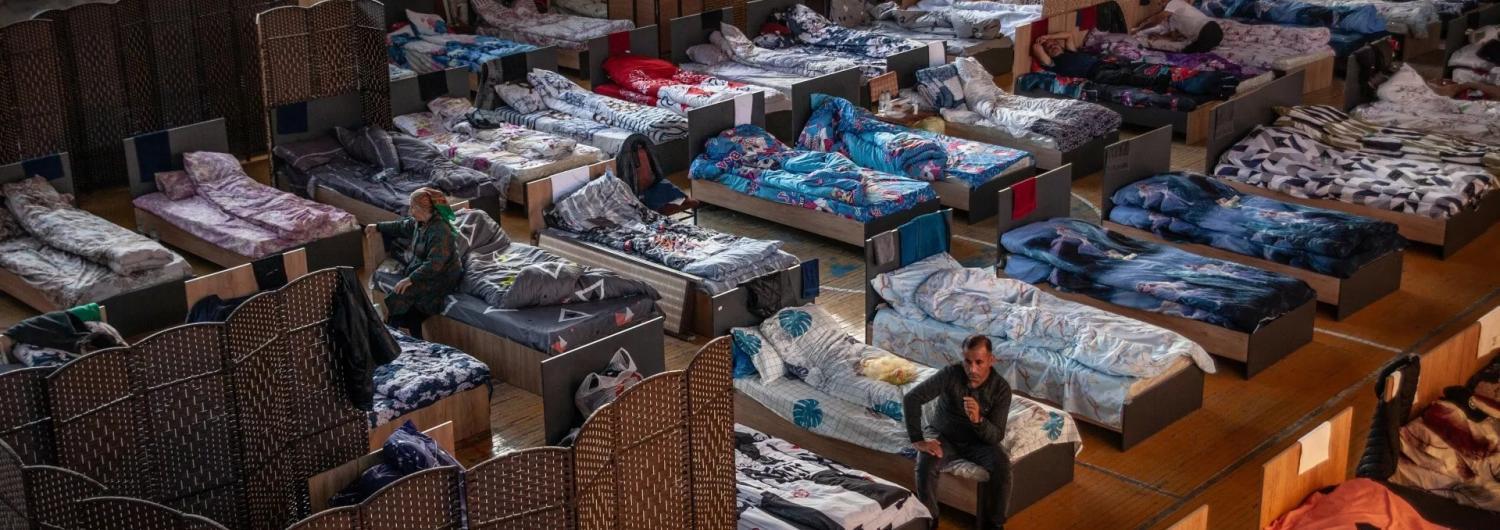

Which Future Do We Have?’: Stories from Refugees in Armenia
By Elisa Bernal Arellano, Emergency Communications Specialist With support from Kenneal Patterson, Communications Associate
Nearly 22,500 refugees in Armenia will experience a mental health condition following the recent conflict in Nagorno-Karabakh, according to a recent estimate by the World Health Organization. September marked the rapid escalation of a decades-long conflict in Armenia and Azerbaijan, forcing more than 100,000 refugees to flee their homes. Families were forced to make dangerous journeys and arrived in Armenia with little food, water, or shelter.
“These refugees arrived with nothing,” said Marcella Maxfield, Action Against Hunger’s Regional Director for South Caucasus. “Facing an uncertain future, they are now in desperate need of emergency assistance—for both urgent needs like food and water and necessities like bedding, medicine, mental healthcare and psychosocial support.”
Prior to the sudden violence, many ethnic Armenians lived in an autonomous small enclave region or “oblast” called Nagorno-Karabakh. It’s been home to around 120,000 people for decades. But when Azerbaijan launched a sudden offensive at the end of September, nearly all ethnic Armenians left in an exodus. The military offensive was preceded by a nine-month blockade, during which most families in Nagorno-Karabakh faced severe hunger, little electricity, and constant fear.
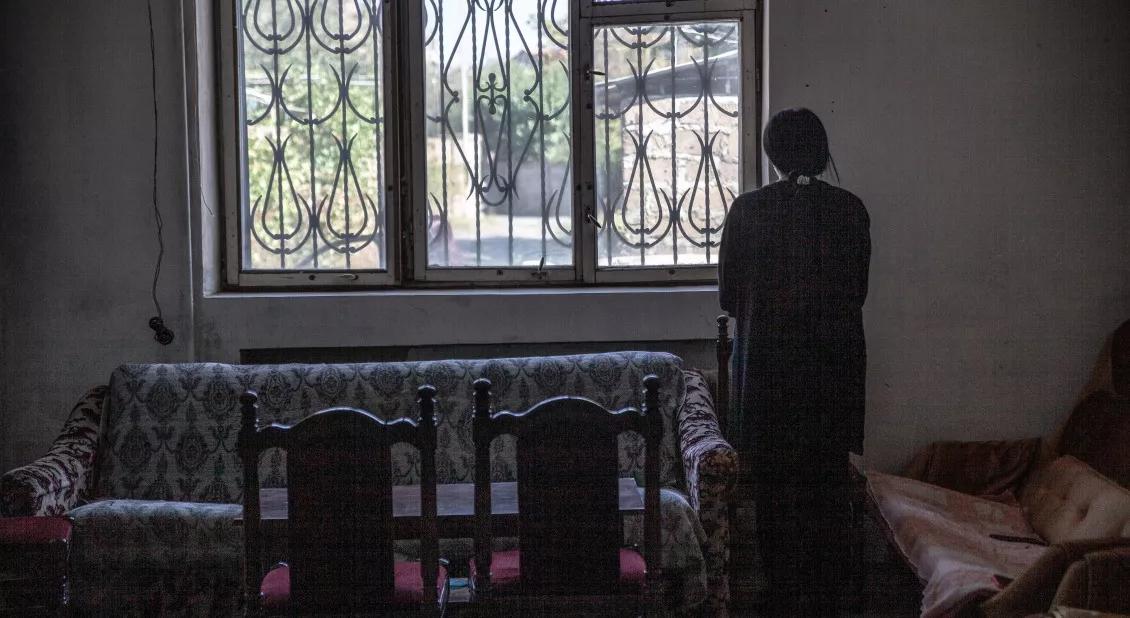
After a nearly 30-year bid for independence, the de facto authorities in Nagorno-Karabakh agreed to disband its government and armed forces following the attack.
Most of the population was forced to abandon their homes and relocate to the Armenian border province of Syunik, especially in the town of Goris. The journey was long and exhausting. There was only one escape route out of Nagorno-Karabakh: a winding mountain road. Many people were already weak and underprepared after enduring a nine-month blockade, where most families were only allocated small food rations. The forced mass departure only exacerbated many illnesses or cases of malnutrition.
After three days in the car with very little food or water—or, in some cases, hours of walking miles and miles—many grew malnourished or fell ill. Some of the most vulnerable or eldest of the group died along the way.
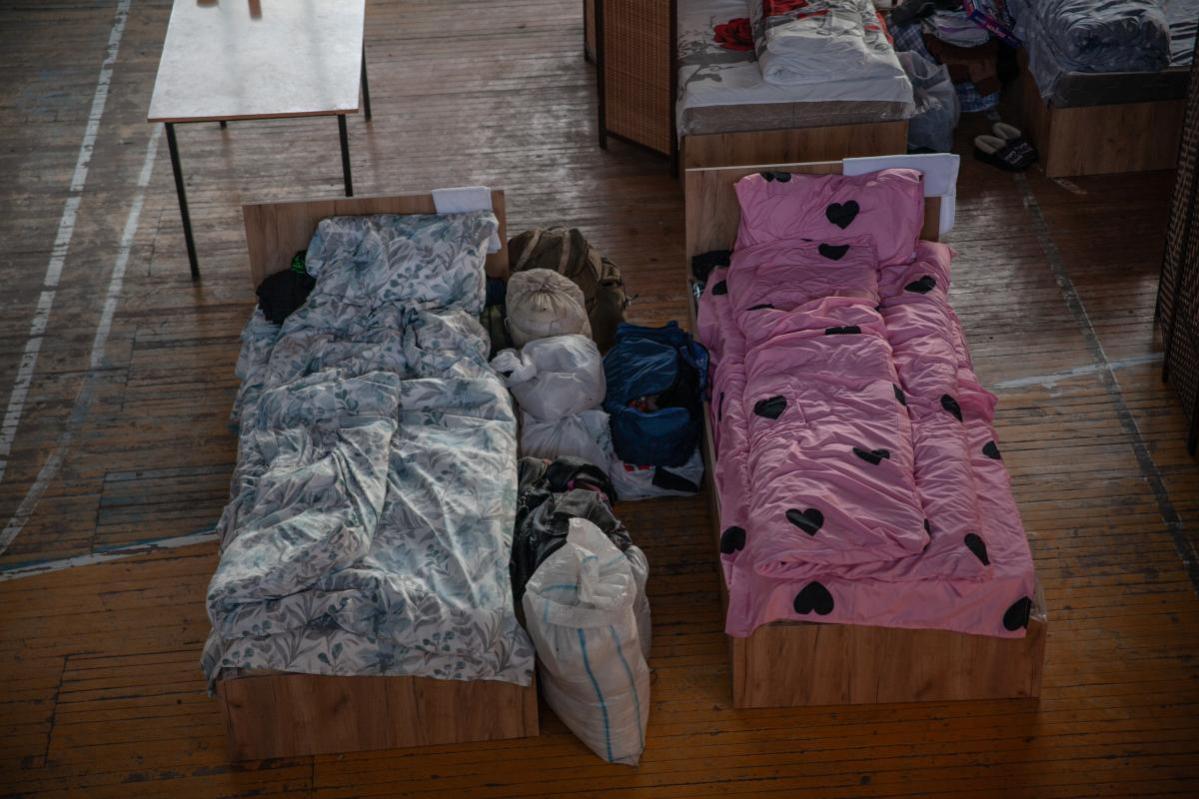
Today, many refugees have spread out in larger cities like Yerevan, Kotayk and Ararat. Armenia is now faced with an extensive refugee crisis; 1 in 30 people throughout the country is a refugee. More than half of the refugees are women and girls, nearly one third are children, and nearly one fifth are elderly. Their whole lives are uprooted. In the coming weeks, they will have to restart their lives: finding a home, a job, and personal belongings, since most arrived with practically nothing.
The conflict has sparked a mental health crisis, too. Yet even with little to their names, they are showcasing resilience, strength, and hope. Here are their stories.
Anoush, 38
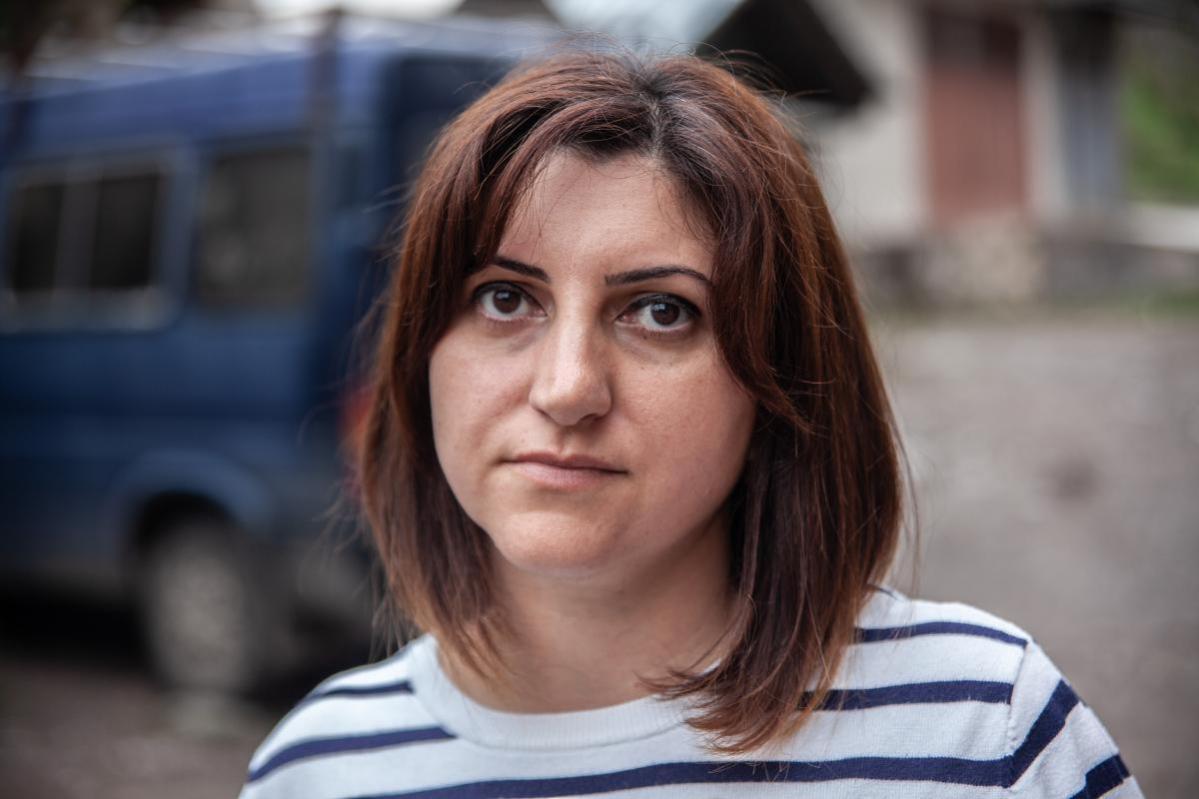
When Anoush was forced to flee her home on September 26, she only had time to bring three things—the last of her onions and potatoes and a few winter coats. She left with her husband and her son and traveled for two days before reaching Goris. They had nothing to eat, and out of desperation, asked people in passing cars for water to survive the long trek.
Before the violence escalated, Anoush and her family endured a nine-month blockade in Nagorno-Karabakh with little food. They relied on pasta and rice for months, and desperately stocked up on as much medicine as possible for their son’s allergies. In May, Anoush ran out of flour, and she resorted to baking bread out of a mix of different cereals. She and her neighbors began baking bread in a shared outdoor fireplace—no electricity was available. To start a fire, she had to collect wood from the forest, since no fuel was to be found either.
During the rare months that the schools were open, Anoush’s son had to do homework during the day. At night there was only candlelight, which reinforced his anxiety about the ongoing blockade.
Anoush is a trained psychologist, and in Nagorno-Karabakh, she worked in a university and center for elders.
“After the blockade started, all that my patients could think about was the situation. There was chaos. Everyone forgot why they were coming to the psychologist in the first place and could only think about the blockade,” she said. “Before the blockade, I told my patients to look forward to the future. After the blockade, I could not say that anymore. Which future did we have?”
This is the third time Anoush has been displaced. In 2020, her house in Nagorno-Karabakh was destroyed during the conflict. She and her family rebuilt it, but “now, we are not going to be able to reconstruct anything.”
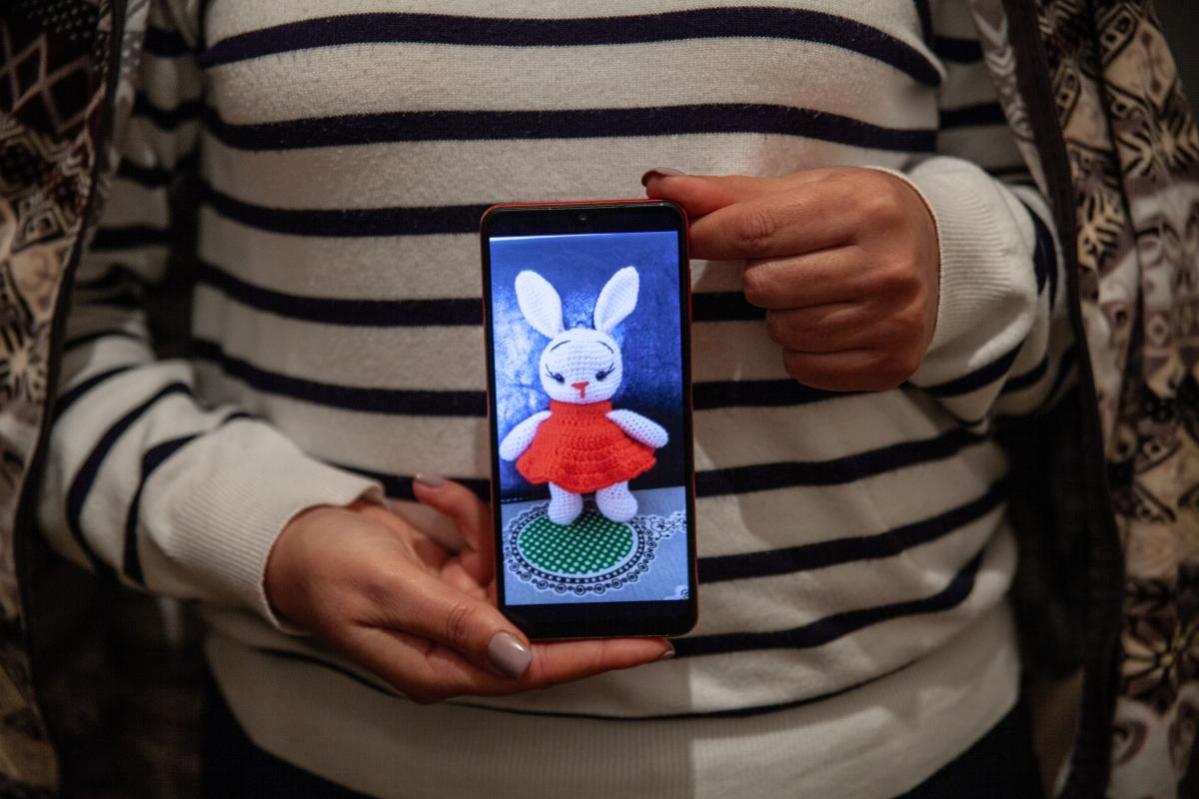
Now, Anoush lives in a small apartment in Goris. She is still in survival-mode—she used to love making toys and baking desserts, but no longer has any interest. Each night, she sleeps next to her son.
“My son is still afraid of the bombardments,” she said. “He does not want to sleep alone.”
Nora, 26

Nora fled the conflict on September 25 with her whole family—her grandmother, aunt, niece, newborn cousin, mother, father, husband, sisters, and brother. They arrived three days later in Goris. For the last two days of their journey, they had nothing to eat. They were forced to resort to drinking water from lakes and rivers in the surrounding mountains. Throughout the entire trip, Nora said that no one was able to sleep for even one hour.
During the blockade, Nora was pregnant, but she miscarried due to acute stress and malnutrition. Access to health services was limited, and it took Nora over an hour and a half to walk to work. They relied mostly on the potatoes they grew themselves.
Now, Nora lives with a family member in a city called Parakar, in Armenia. Her apartment has no electricity, gas, or water. They have a small reserve of savings to buy food, but it is already running low.
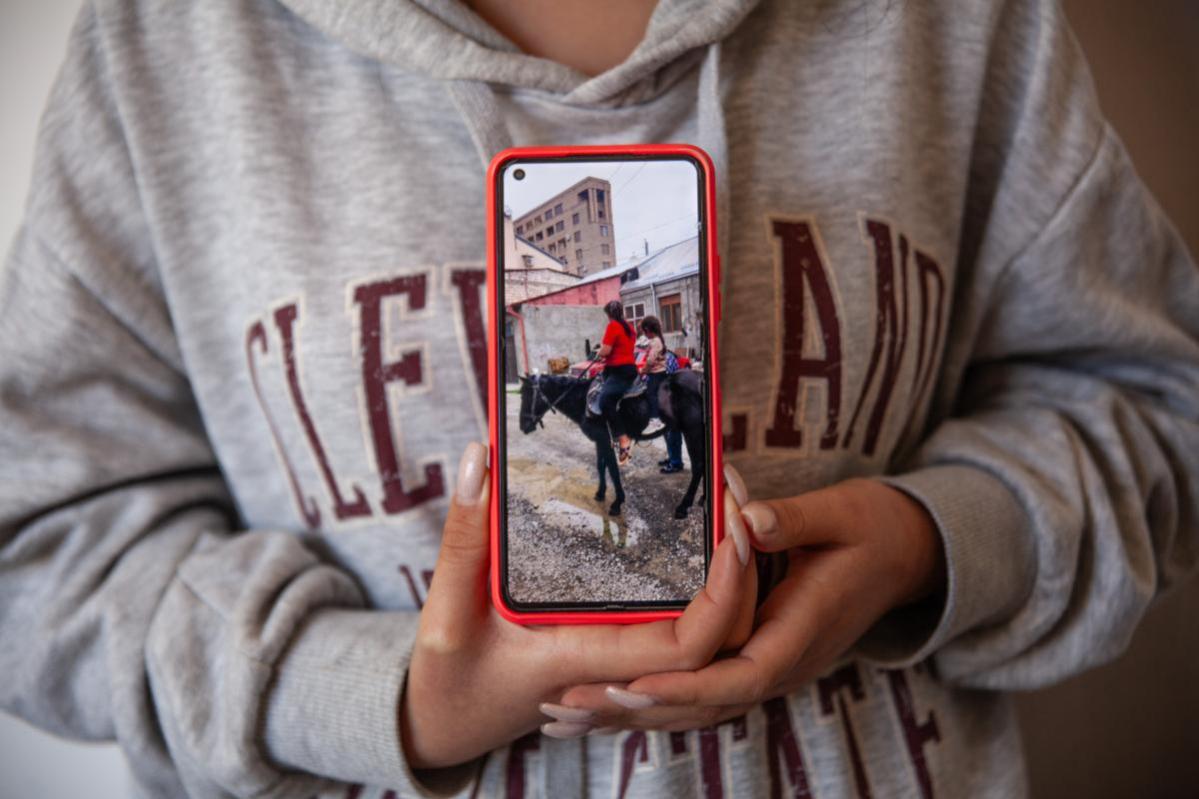
Nora worries for her seven-year-old brother, who has already suffered so much for someone so young.
Nora has one wish—to return home. “I want to go back to Nagorno-Karabakh,” she said.
Armine and Sasun, 44
Armine and Sasun have leaned on each other for over two decades. Without each other to rely on—or without the kindness of friends—they would have had to suffer through challenges and conflicts alone.
The pair met in childhood. They grew up as neighbors and even went to the same kindergarten. They have been together for 23 years now and have a son and daughter. Armine and Sasun have endured many seasons of life by each other’s side.
In 2009, Armine and Sasun met a soldier in Armenia by chance. The soldier, who wishes to remain anonymous, immediately bonded with Armine and Sasun and the three became very good friends. They all stayed in touch for years, and in 2020, when the first conflict broke out, Armine and Sasun took refuge in the soldier’s home in Goris. Armine’s brother was killed during the war, and the soldier offered a safe place for the family to stay and mourn.
The soldier repeated the same hospitality and kindness in September 2023, when Armine and Sasun fled Nagorno-Karabakh. Armine is especially grateful for their soldier friend, who has hosted four families since September. Right when the conflict broke out, the soldier opened up her home to 17 people. Now, only four remain: Armine, Sasun, and their children.
For months prior to the conflict, Armine and Sasun had already been living off meager food rations during the blockade. They were given vouchers to buy food, but the amounts were hardly sufficient—three kilograms of vegetables, two kilograms of fruit, two kilograms of potatoes and a small amount of bread. Armine and Sasun were expected to divide this portion amongst the entire family. If they didn’t use the vouchers to buy food within a two-week period, they missed their opportunity— and there would be no telling when the next round of vouchers would arrive. It was expensive, too: even though they had vouchers, they still had to purchase the food themselves. A single cabbage could cost over $16.
Just like the soldier had done for them, Armine and Sasun tried their best to lend a helping hand to others in their town. “There were exchanges, and people helped each other as much as possible,” Sasun said.
Armine agreed, adding that her son once went to buy bread and stood in a queue until 5am. On the way home, however, he gave the bread away to a disabled man that was struggling.
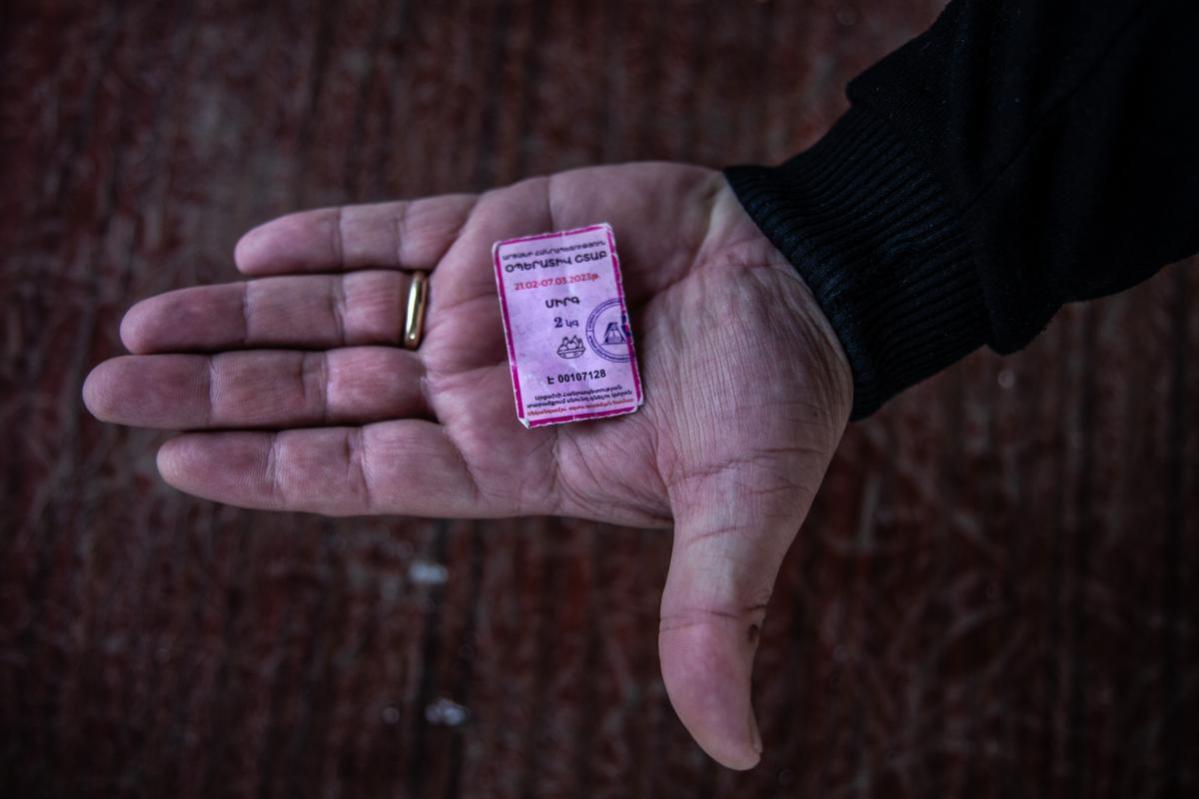
Armine and Sasun were forced to flee Nagorno-Karabakh on Sep. 26 with barely any notice. Their apartment was completely destroyed by the war. They were on the road for two days and only had one loaf of bread to share between them. The soldier greeted them with open arms when they arrived in Armenia.
“These are my friends: how could I not invite them to my house?” she said. “Even before this war, during the blockade, we tried to be in touch as much as possible to try and help them.”
The soldier said that it makes her happy to be surrounded by people. “The doors of my house were always open,” she said. “Your hearts and doors should always be open. When the house is empty, my soul is empty. We do not care about our money and savings, we care about hospitality. Helping each other.”
Narine, 46
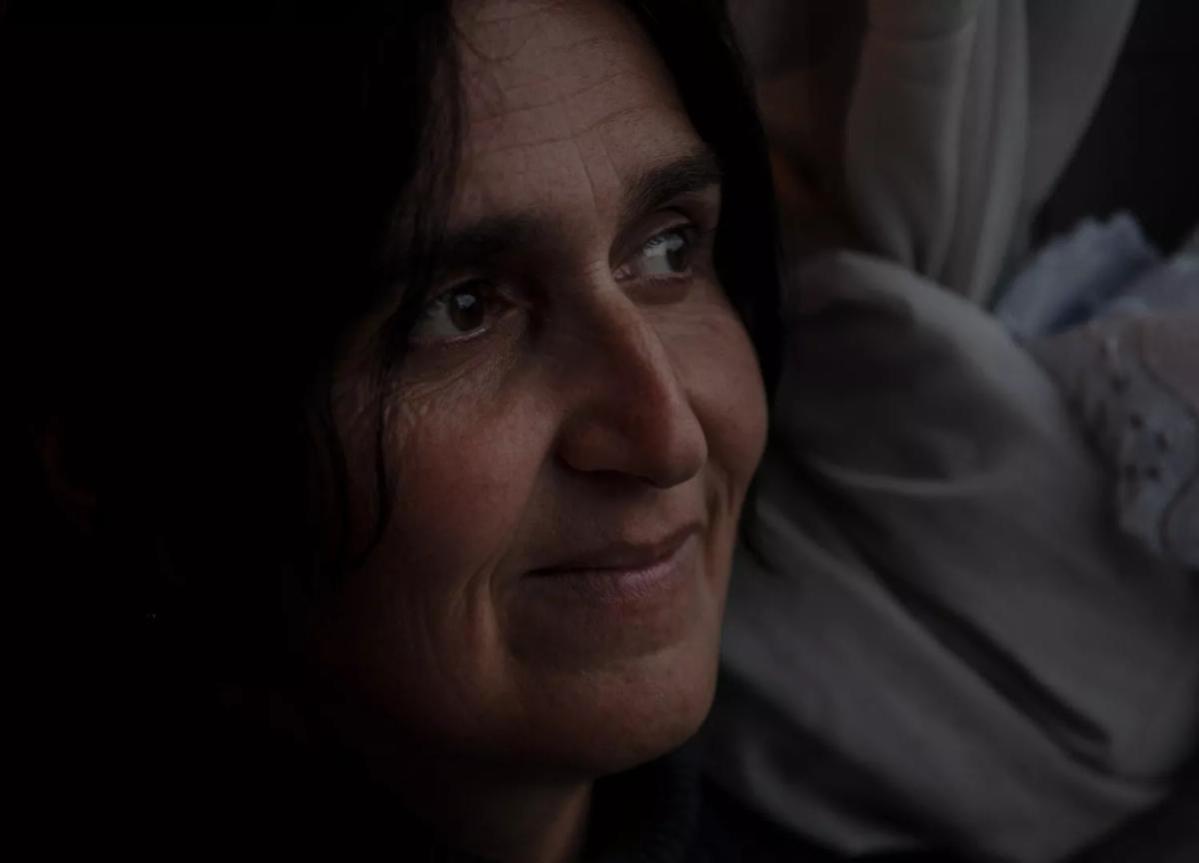
Narine has been displaced twice now. The first time was in 2020, during which her whole family moved to Yerevan, Armenia’s capital city. They stayed in a hotel for 44 days. Her son joined the army to fight on the border, and Narine experienced a severe mental health crisis. “I was very bad psychologically,” she said. “I was depressed.”
After a month and a half, Narine returned home to Nagorno-Karabakh. She only experienced a short period of peace before her life was disrupted again. During the long blockade, there was no transportation, no fuel, and little access to healthcare. She said the drug stores were empty and she was barely able to find painkillers. “The closest hospital was over 15 miles away from our house. I have a heart illness and am unable to walk such long distances.”
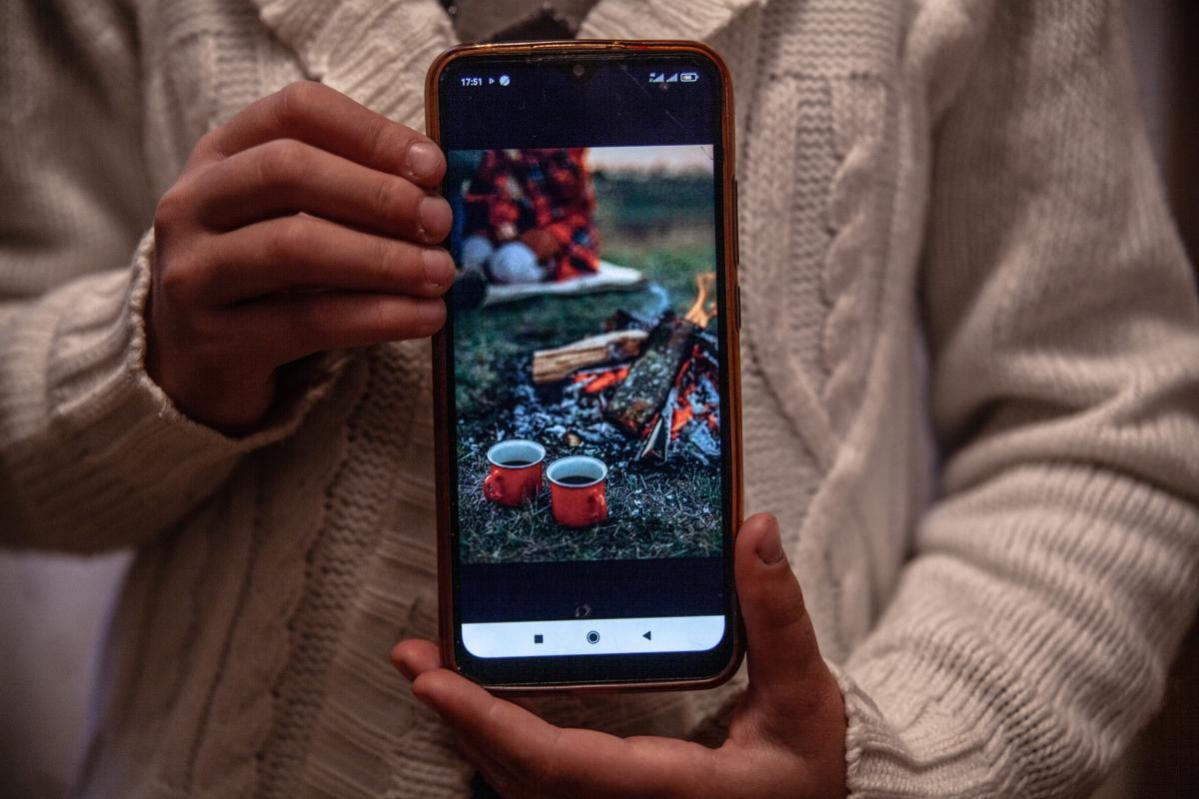
Food was also scarce—like many others during the blockade, Narine relied on the mandated 200 grams of bread per family member. She mostly survived on a diet of potatoes and poorly made bread, which she whipped up out of what little ingredients she could find.
“The bread we made was almost black, but at least we had that,” she said. “We were hungry.” When Narine fled to Goris, she could only bring a few items: clothes for her six kids and a little bit of bread, cheese, and water—only enough to sustain her for one day. Her supply ran out quickly during the long journey to Armenia. Now, Narine can barely afford rent for an apartment in Goris. She has little money and is quickly losing hope.
Action Against Hunger’s Response
Action Against Hunger has responded to emergencies in South Caucasus since 1993. Today, our teams are on the ground in Kotayk, Ararat, Vayots Dzor, Yerevan, and Syunik, assessing needs and providing urgent assistance.
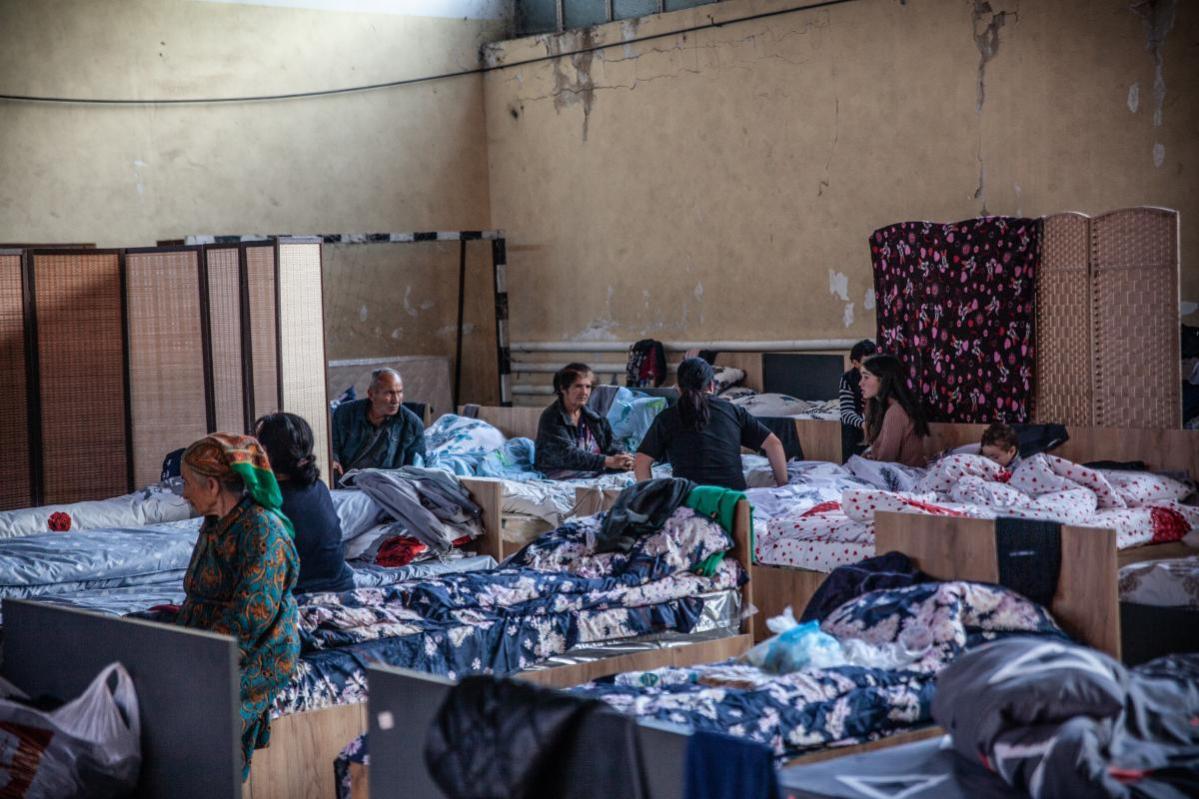
Since the onset of the 2020 Nagorno-Karabakh war, we have been carrying out emergency preparedness and response projects to support displaced people. Today, we’re coordinating multipurpose cash and voucher assistance, supporting nutrition initiatives, offering protection and legal assistance, establishing child-friendly and breastfeeding spaces, helping people find homes and livelihoods, and more. We are providing cash and voucher assistance for 3,500 households and mental health and psychosocial support for 1,500 individuals across the country.
We are partnering with local community centers and ensuring that we offer safety and support to as many refugees as possible.
By Elisa Bernal Arellano, Emergency Communications Specialist
With support from Kenneal Patterson, Communications Associate
Read the original article here
